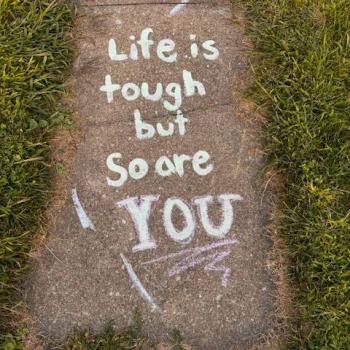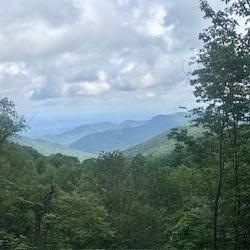Mathew 5:9 – “Blessed are the peacemakers because they are the children of God.”
The first century Palestine during the time Jesus was here was a time of political strife and economic hardship. According to Riches https://www.cambridge.org/core/books/abs/world-of-jesus/political-economic-social-and-cultural-context-of-firstcentury-palestinian-judaism/78E9FC5FF52226BA04868426D9EDF481 (1990):
Palestine at the turn of the era was under Roman control. It was not, however, all controlled in the same manner. Herod the Great, a loyal and politically crafty client king, had just died (4 B.C.). His kingdom, after much deliberation by Augustus at Rome, had been divided between his three sons, Archelaus, Philip, and Herod Antipas. Archelaus was appointed ethnarch over Judea, Samaria, and Idumaea; Herod Antipas tetrarch over Galilee and Peraea; Herod Philip tetrarch over Batanaea, Trachonitis, and Auranitis (Ant. xvii.317–20). None received the title “king,” which they wanted, though the title “ethnarch” had more dignity than that of tetrarch. Within a few years Archelaus’ disastrous rule would end in the imposition of direct Roman rule over Judea (A.D. 6). Herod Antipas’ rule in Galilee would last until he incurred the emperor Caligula’s (A.D. 37–41) displeasure in A.D. 39 by asking to be made king (Ant. xviii.240–55)
The Maccabean revolt had happened in 160-170 BCE and it’s memory would have been like the United States’ memory of the Civil War and specifically, the American Revolution where American Colonists overthrew their British overlords. By the time Jesus came onto the scene, the Romans had resumed control of the territory Jesus lived and the subversive nature they implored on the Jewish people was severe, though the people were allowed to practice their Jewish faith. In writings recorded in the Gospels attributed to Jesus, you will see Jesus speaking out against these atrocities. Perhaps Jesus’ most famous sermon is his Sermon on the Mount from which the opening scripture comes from.
It Came Upon a Midnight Clear
It Came Upon a Midnight Clear https://hymnary.org/text/it_came_upon_the_midnight_clear is a common hymn sung this time of year. Written by Reverend Edmund Sears, this hymn came to him while going through a trying period of his ministry, what we call a dark night of the soul. Looking around at the state of the nation he lived in, he found himself longing for peace.
As we close out 2023, we observe a world that seems to be crashing in on itself. Perhaps we too are longing for peace. I have found myself buried in Howard Zinn’s “A People’s History of the United States” and have truly found that what is going on right now is not so bad, we truly are living in a time of unprecedented safety and security. Now, you may be reading this with a skeptical eye, and may accuse me of writing this from my white privilege, but Zinn points out that all classes and all colors of people had unprecedented lack of opportunities and as laws have strengthened society, we truly are all better off. This does not discount that problems still exist for women, BIPOC and the LGBTQ communities.
Challenge – Become a Peacemaker
This challenges us then, how do we become peacemakers? Something I have been thinking about as I have been preparing for my spring class that I am teaching in April is our societies lack of meaning and connection. In a conference I was at recently, the speaker stated that perception is the driver of conflict. As a therapist, I find that developmentally, we need systems to help create meaning and when this meaning is not created, we as humans create our own. We need our families, our societal systems (church, school, civic organizations) to challenge our perceptions to help us grow out of the narcissism that marks our childish existence.
Unfortunately, our systems have fallen apart. What we are left with is a once sided system that relies heavily on a system of violence. We have become conflicted around who is saved and unsaved. Violence now shows up in forms of speech, bad theology and unfortunately action towards woman, children, black and brown bodies, and people we deem different than us. Conflict as violence reflects one’s spiritual maturity. Conflict as violence breeds radicalization.
What we need are peacemakers. As we come to our last two weeks before Christmas, as we begin to think about this person Jesus and all that he will teach us over the next coming months as we celebrate his life through the liturgical year, let us be reminded that the peacemakers are blessed.
Peacebuilding
In Jesus’ day, sinfulness was one’s separation from the community. Here, the Jewish ontological orientation can be seen in full display. The Jewish people then and still today have thousands of years of discrimination and violence poured upon them. They have built up a strong tie to community and to get in the way of this tie, much in the way Zachaeus and the Jewish temple leaders did, puts one at odds with the community. What is wrong with the world today? It is not that we have abandoned God, it is that we have abandoned each other. We have lost our identity as a people and our systems have stopped creating meaning, only polarization.
Christ’ mission was to be a peace builder. His ministry evolved to be a provocative voice for peace. He called out to the injustice around him. We must do the same. We must change our relationship with conflict and see it as good work. How we approach conflict determines the outcome of trauma. Blessed are the peacemakers. Blessed are the meek too, but sometimes the meek need to roar like lions. It is not what is done to you, but how you react. We can react with love. We can compassionately allow ourselves to be transformed by the renewing of our minds and beginning to the see all people as potential seats of Christ.
Peace on earth and good will to men, all men, all women and all who are questioning their humanity.
Reference:
Riches, J. (1990). The Political, Economic, Social, and Cultural Context of First-Century Palestinian Judaism. In The World of Jesus: First-Century Judaism in Crisis (Understanding Jesus Today, pp. 10-29). Cambridge: Cambridge University Press. doi:10.1017/CBO9780511621437.002













